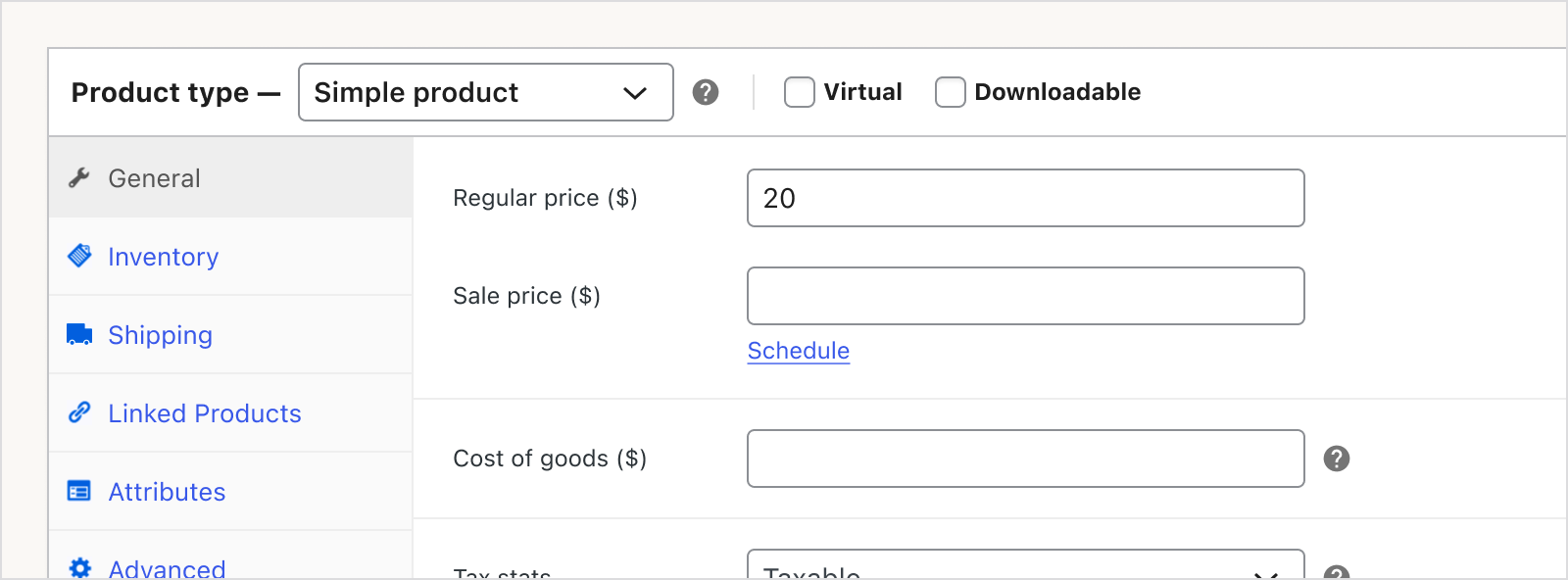We’re thrilled to announce that Cost of Goods Sold (COGS) is coming to WooCommerce core! Soon, merchants, builders and developers will have this essential feature built-in, with no need for additional extensions or custom code.
What is Cost of Goods Sold, and why does it matter?
Understanding the true cost of each product sold is fundamental to running a successful ecommerce business. With COGS in WooCommerce core, merchants will be able to:
- Calculate exact profit margins for every product and order.
- Make data-driven decisions about pricing, marketing, and inventory management.
- Track their store’s financial performance with greater precision.
What to expect from the core COGS feature:
This new COGS feature will launch with a straightforward approach to help you start tracking product costs right away. You’ll find a new cost field alongside other pricing fields when editing products, making it a natural part of your product management workflow. When order totals are calculated, we’ll automatically record the current cost of each product as order item meta. This ensures accurate cost tracking at the time of purchase and during any subsequent order updates. For simplicity, the system will use the product’s current cost at the time of purchase, rather than tracking historical cost variations when stock levels change (like in FIFO accounting).
While this initial version focuses on essential cost tracking, we’re committed to enhancing it over time with more advanced capabilities that align with growing business needs. Future updates may introduce features like historical cost tracking, advanced reporting, and more granular cost management options. We’d love to hear your thoughts on which features would be most valuable for your business.

What should extension developers anticipate?
We recognize that some merchants are already using COGS-focused extensions available in the WooCommerce.com Marketplace. Adding COGS to WooCommerce core will reduce the need for some of these extensions, and we know this impacts both merchants and extension developers. Our goal is to make it easier for merchants to manage and understand key aspects of their stores, and believe that making this a standardized feature in WooCommerce core will unlock the potential for extension developers to build on top of and enhance this feature in new valuable ways for merchants. We’re particularly keen to hear from extension developers about how we can ensure this core implementation complements and supports their solutions.
What’s next?
This initial rollout of COGS in WooCommerce core lays the foundation for more comprehensive profit tracking in the future. We’ll share updates here as we develop new features based on your feedback and evolving business needs.
Thank you for being part of the WooCommerce community! We’re excited to help you better understand and grow your business.
Leave a Reply